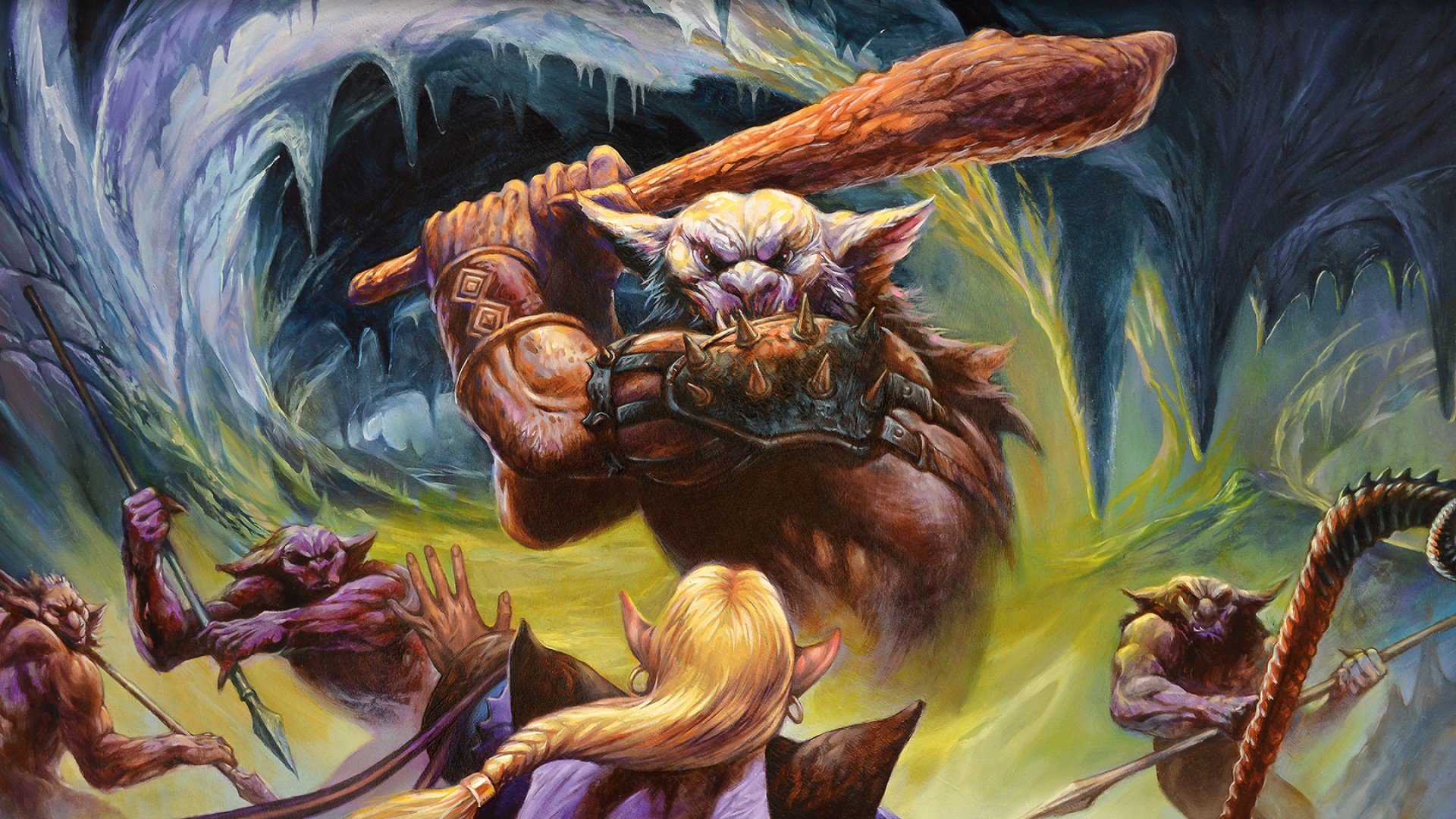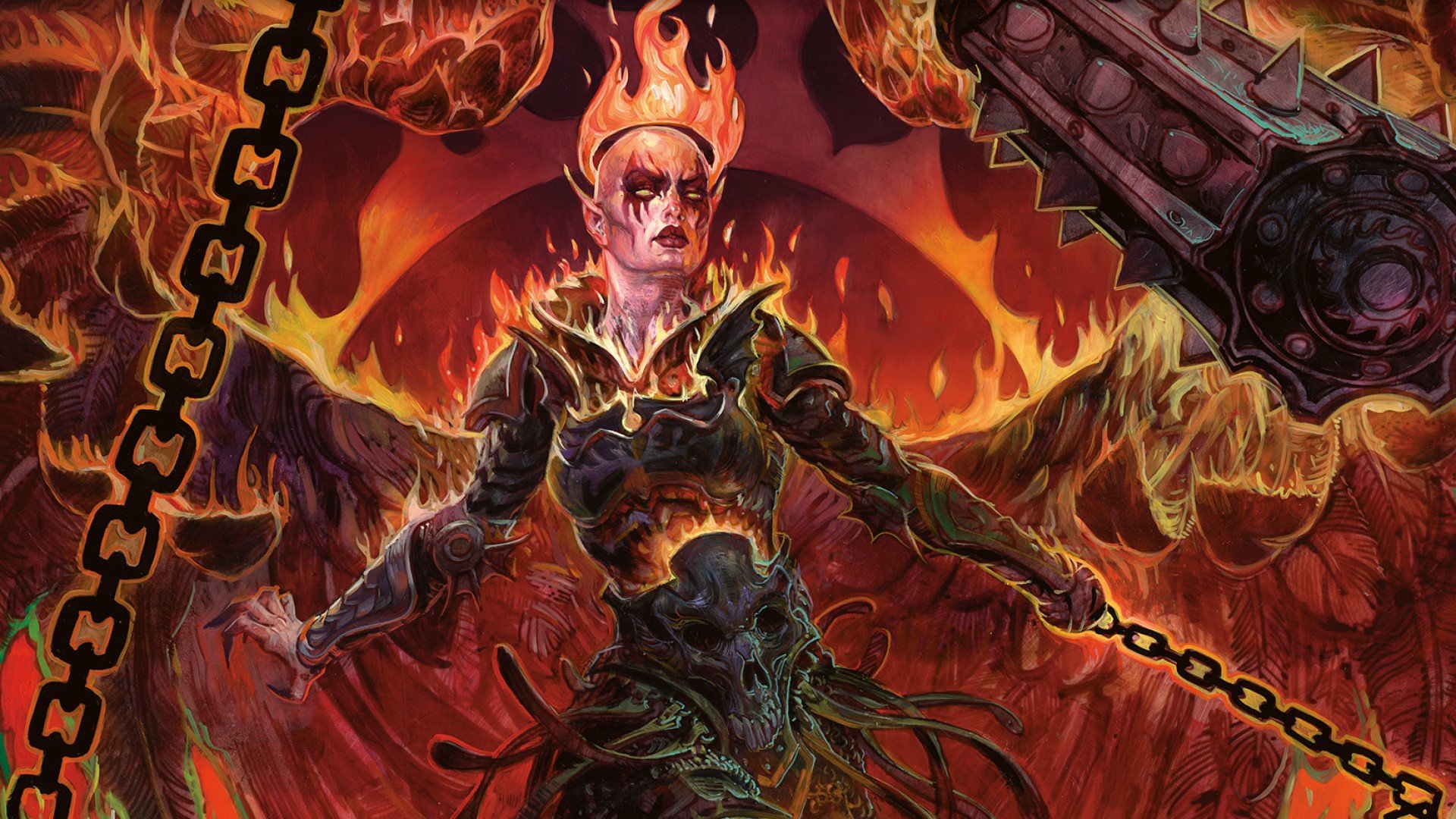There are 15 DnD languages in the game’s 5th edition. Eight are considered ‘Standard’ languages, which you can expect to crop up regularly in the average campaign. The other eight are deemed ‘Exotic’ languages, which are usually much rarer and more esoteric. When playing, DnD languages can often fade into the background, especially if every NPC speaks fluent Common. But if used correctly, they can create plenty of interesting gameplay moments. Here, we’ll cover the full list of 5e languages, and explain how to use them in your Dungeons and Dragons games.
One of the first questions you’ll face when loading up your preferred DnD character creator is what DnD languages your character knows. For the most part, it’s down to personal choice and what you think will create good roleplay opportunities; there’s no mechanical benefits to knowing Dwarvish, for instance. When deciding on a 5e language, keep in mind what DnD races and DnD monsters you are likely to encounter, and try to pick languages to match.
Below you’ll find the full DnD languages list, containing every 5e language – from Elvish to Abyssal.
Standard DnD languages 5e
| Language | Main Speakers | Alphabet |
| Common | Humans (and other races) | Common |
| Dwarvish | Dwarves | Dwarvish |
| Elvish | Elves | Elvish |
| Giant | Ogres, giants | Dwarvish |
| Gnomish | Gnomes | Dwarvish |
| Goblins | Goblinoids | Dwarvish |
| Halfling | Halflings | Common |
| Orc | Orcs | Dwarvish |
The Standard DnD languages may seem a bit less exciting, but in most DnD campaigns, they’re the most useful 5e languages to learn. Picking the native tongue of the DnD halfling, or DnD elf, the dwarf, or the gnome can be valuable, as these races will be found hanging out in most settlements you visit.
Common is a universal DnD language spoken by most races, and unless you specify otherwise, it’s usually the 5e language you’ll be assumed to be using. Being able to talk to everyone even if you don’t know their language is super useful, but it doesn’t render these standard DnD languages useless, provided you’re creative.
For instance, you might form bonds of kinship through a shared language, and you’ll also be able to overhear secret conversations or conduct private chats of your own. If you travel to settlements without humans, you’ll hear different DnD languages all the time – and having someone in the party who knows what’s being said may be vital.
If you pick the 5e language of DnD goblins, ogres, giants, or orcs, you’re more likely to make use of them during hostile encounters. Many creatures speaking these 5e languages will have evil DnD alignments. Still, if you know these languages you’ll be able to pick up orders barked out during a fight, or have an easier time conducting diplomacy.
Exotic DnD languages 5e
| Language | Main Speakers | Alphabet |
| Abyssal | Demons | Infernal |
| Celestial | Celestials | Celestial |
| Draconic | Dragons, dragonborn | Draconic |
| Infernal | Devils | Infernal |
| Deep Speech | Mind flayers, Beholders | None |
| Primordial | Elementals | Dwarvish |
| Sylvan | Fey creatures | Elvish |
| Undercommon | Underworld traders | Elvish |
The Players’ Handbook suggests you should ask your DM for permission before you take an exotic DnD language. It’s hard to see why you’d be banned from picking one, but it probably is worthwhile having a quick discussion with your DM anyhow, for one simple reason.
Whereas an imaginative player will find opportunities to use the Standard DnD languages in pretty much any game, the Exotic DnD languages are a bit more all or nothing. Many of them are mainly spoken in particular far flung regions, or specific DnD planes.
If you’re not going to the Feywild, knowing Sylvan won’t be very helpful. If your adventures won’t take you on a road to heaven or hell, then Celestial or Infernal scripts aren’t likely to be useful – though the Tiefling 5e gets Infernal as a matter of course. And there’s not much point brushing up on your Undercommon and then never venturing underground.
On the other hand, if you are likely to get use out of them, Exotic DnD languages become far more useful than the Standard ones. With Exotic languages, you’re far more likely to find situations where you’re the only one who can easily communicate. Common is less, er, common, in distant realms where humans seldom go.
Source: Wargamer





